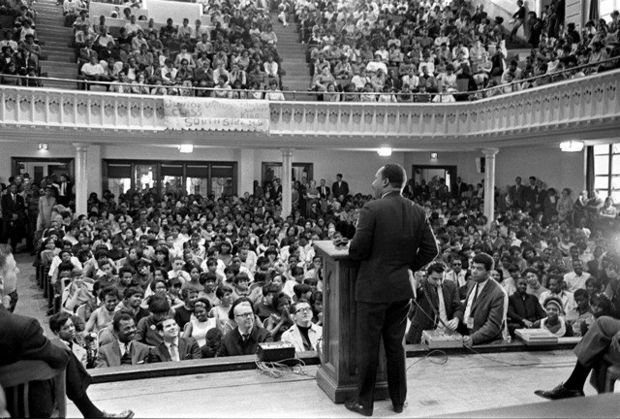The Martin Luther King Jr. Holiday holds significant importance across the United States, honoring the life and legacy of one of the most influential leaders in American history. In New Jersey, the path to officially recognizing the holiday was a journey that reflected both the state’s commitment to civil rights and the broader national struggle for racial equality.
The National Holiday: A Background
Martin Luther King Jr. was born on January 15, 1929, and rose to prominence as a leader in the Civil Rights Movement, advocating for equality, nonviolent resistance, and social justice. His efforts led to major legal and social changes, including the Civil Rights Act of 1964 and the Voting Rights Act of 1965. After his assassination on April 4, 1968, there was widespread recognition of the need to honor his contributions to America’s ongoing fight for civil rights.
The first step in officially recognizing Martin Luther King Jr.’s legacy came with the establishment of a federal holiday in his honor. In 1983, President Ronald Reagan signed a bill into law that made the third Monday of January each year a national holiday dedicated to King’s memory. The holiday was first observed on January 20, 1986, though it took some time for all states to adopt the holiday, as political debates over its significance and implementation unfolded.
New Jersey’s Road to Recognition
New Jersey’s journey toward recognizing Martin Luther King Jr. Day as an official state holiday was marked by both progress and resistance. While the federal holiday was established in 1983, New Jersey was initially slow to fully embrace the holiday. In the years following its creation, the state did not immediately observe Martin Luther King Jr. Day as a paid holiday for state workers, nor did it immediately change public education systems to observe the day.
In 1984, New Jersey’s state government began holding discussions about officially recognizing King’s birthday as a holiday. However, there were complications. Some local and state leaders expressed opposition to creating a new holiday, citing budgetary concerns and questions about the impact of the holiday on state services. Some critics also questioned whether King’s life and legacy were being appropriately honored. Nevertheless, the movement to honor King continued to gain support from civil rights groups, clergy, and local leaders, all of whom pushed for the holiday to be formally recognized.
Legislative Action and the Establishment of the Holiday
In 1989, after years of debate, New Jersey officially passed legislation making Martin Luther King Jr. Day a paid holiday for state employees. Governor James Florio signed the legislation into law, officially establishing the holiday in New Jersey. The law not only created the holiday but also called for the establishment of a state commission to organize events and educational programs that would celebrate the holiday and educate the public about King’s life and work.
However, even with the legislation in place, the holiday was not immediately observed statewide in all municipalities. While most cities and towns in New Jersey eventually adopted the holiday, some resisted for years. A few local governments, particularly in predominantly white communities, were reluctant to observe the holiday due to political reasons or social factors. Over time, however, these objections lessened as public opinion shifted, and Martin Luther King Jr. Day became a day of celebration, reflection, and service throughout New Jersey.
Celebrating Martin Luther King Jr. Day in New Jersey Today
Today, Martin Luther King Jr. Day is widely celebrated across New Jersey. Schools, universities, and public institutions observe the day with special programs, educational activities, and community service projects. Many residents take part in “MLK Day of Service” events, a tradition that encourages people to honor King’s legacy by volunteering in their communities. These activities aim to foster unity and social change, echoing King’s philosophy of nonviolent activism and service to others.
In addition to service projects, various events across the state commemorate King’s life. These include parades, concerts, and speeches from local leaders and activists. For instance, in Newark, the annual Martin Luther King Jr. Day Parade features a diverse group of participants, including students, political leaders, and community organizations. The state also holds educational forums to address current civil rights issues, continuing King’s work in advancing social justice and equality.
New Jersey has also worked to preserve sites significant to King’s legacy. The New Jersey State Museum and other cultural institutions host exhibitions on his life, and the state’s civil rights history continues to be a point of reflection. Additionally, local and state officials regularly gather to honor King’s memory with moments of silence, speeches, and other commemorations.
Looking Ahead: Continuing King’s Legacy
The recognition of Martin Luther King Jr. Day in New Jersey reflects the state’s dedication to remembering the past and fostering an ongoing conversation about racial equality and justice. The holiday not only honors King’s historical role but also serves as a reminder of the ongoing work required to create a more just society. As New Jersey continues to observe Martin Luther King Jr. Day, it does so with a sense of pride in its civil rights achievements and a renewed commitment to King’s vision of equality, unity, and service to all.












